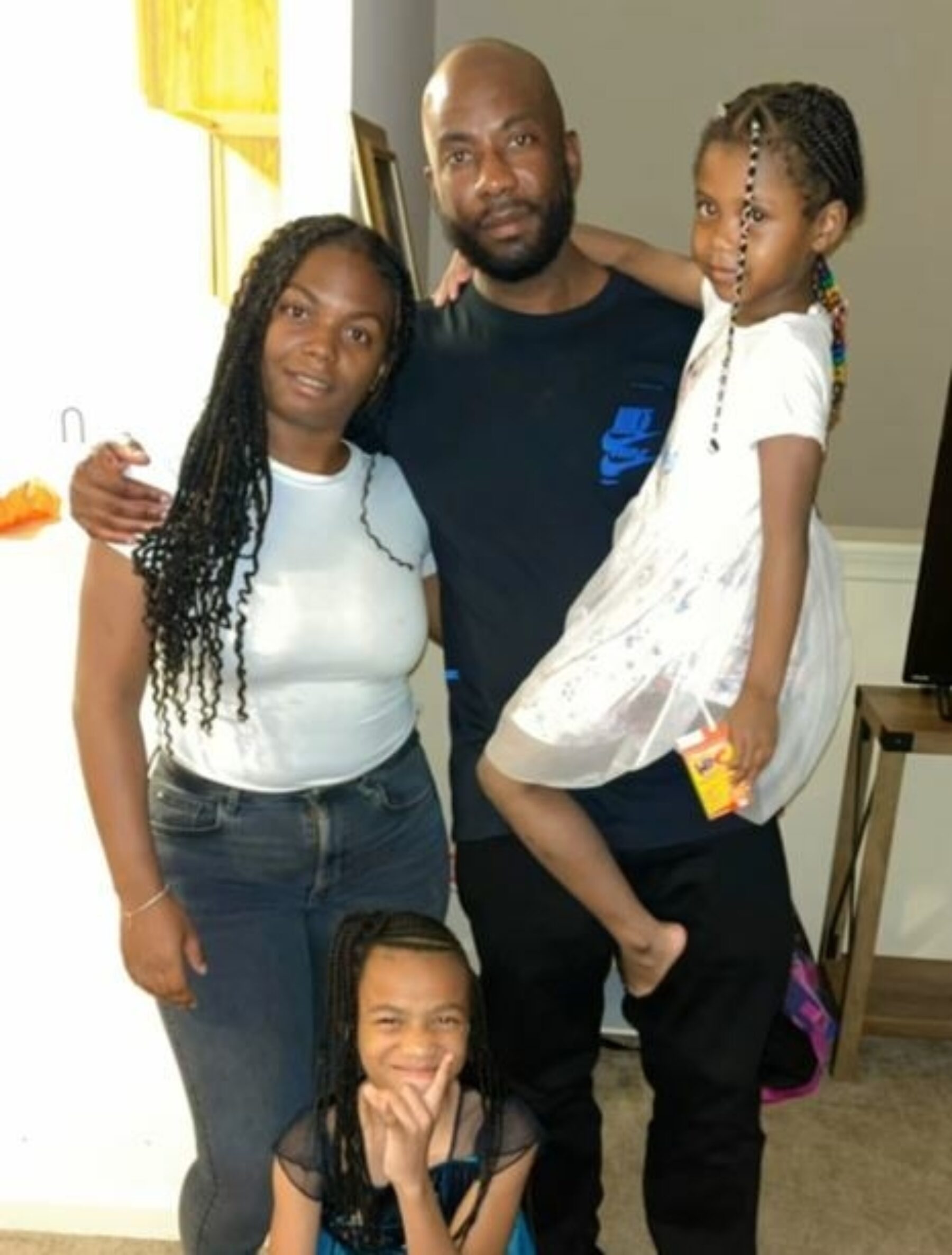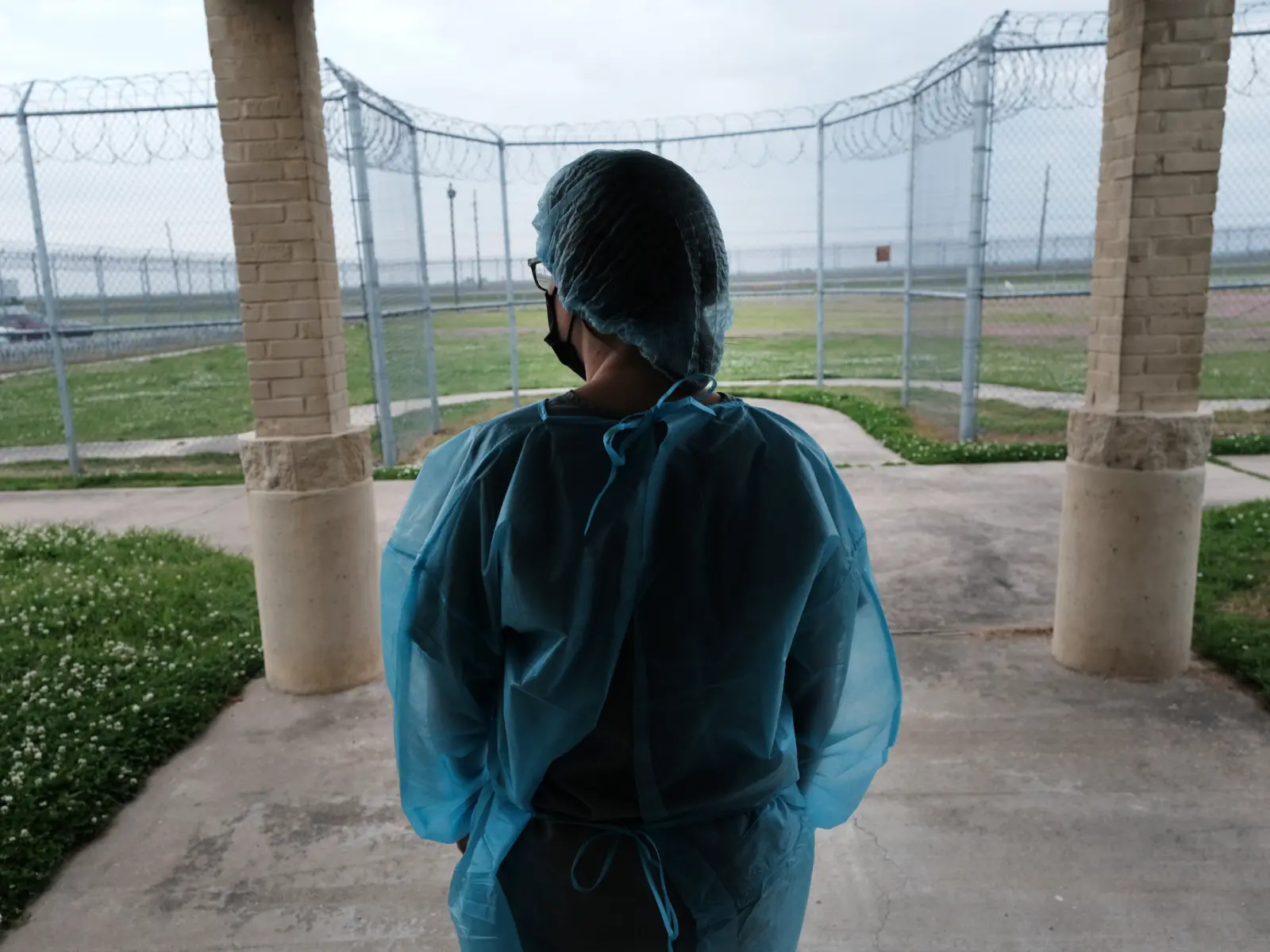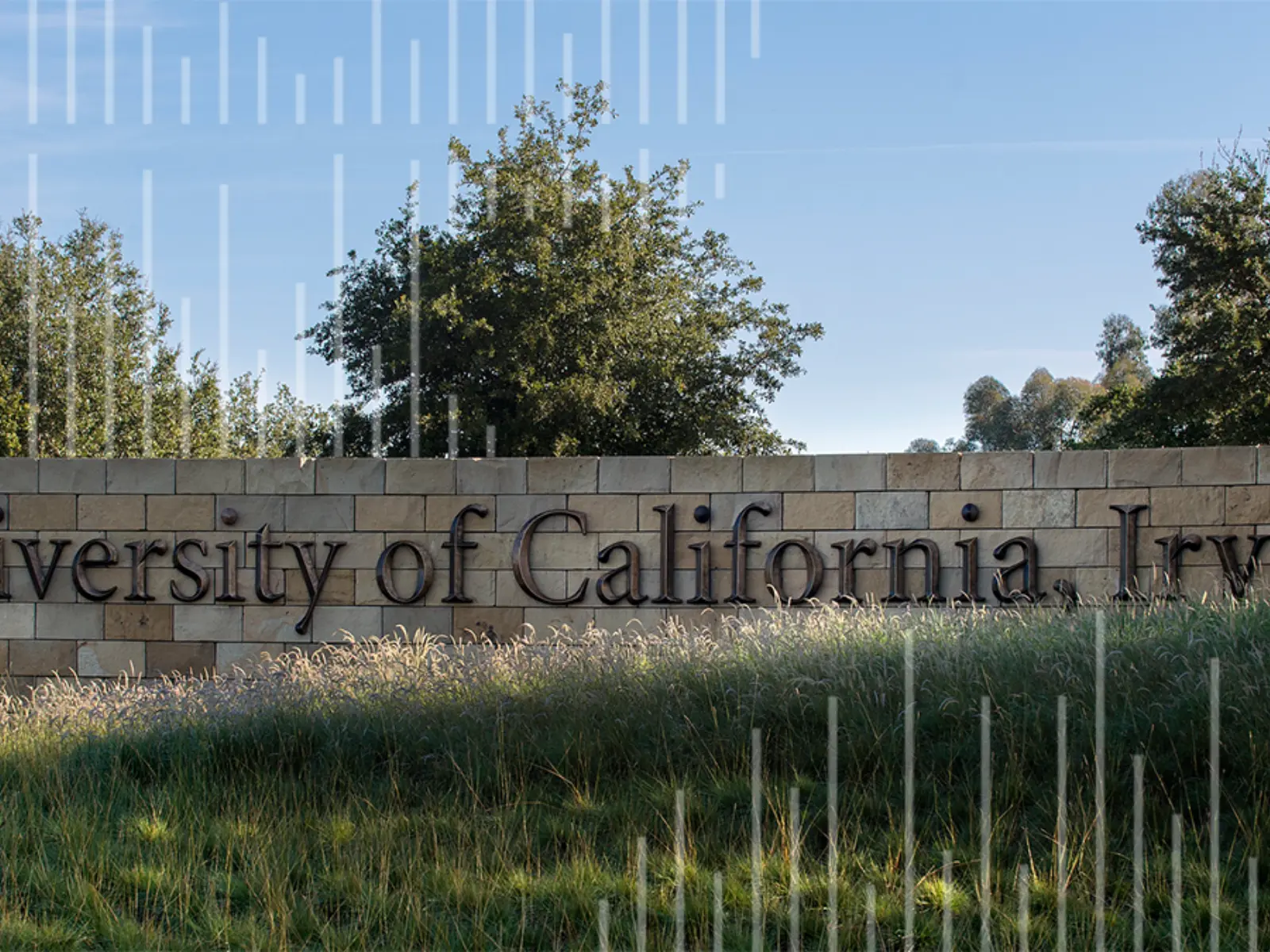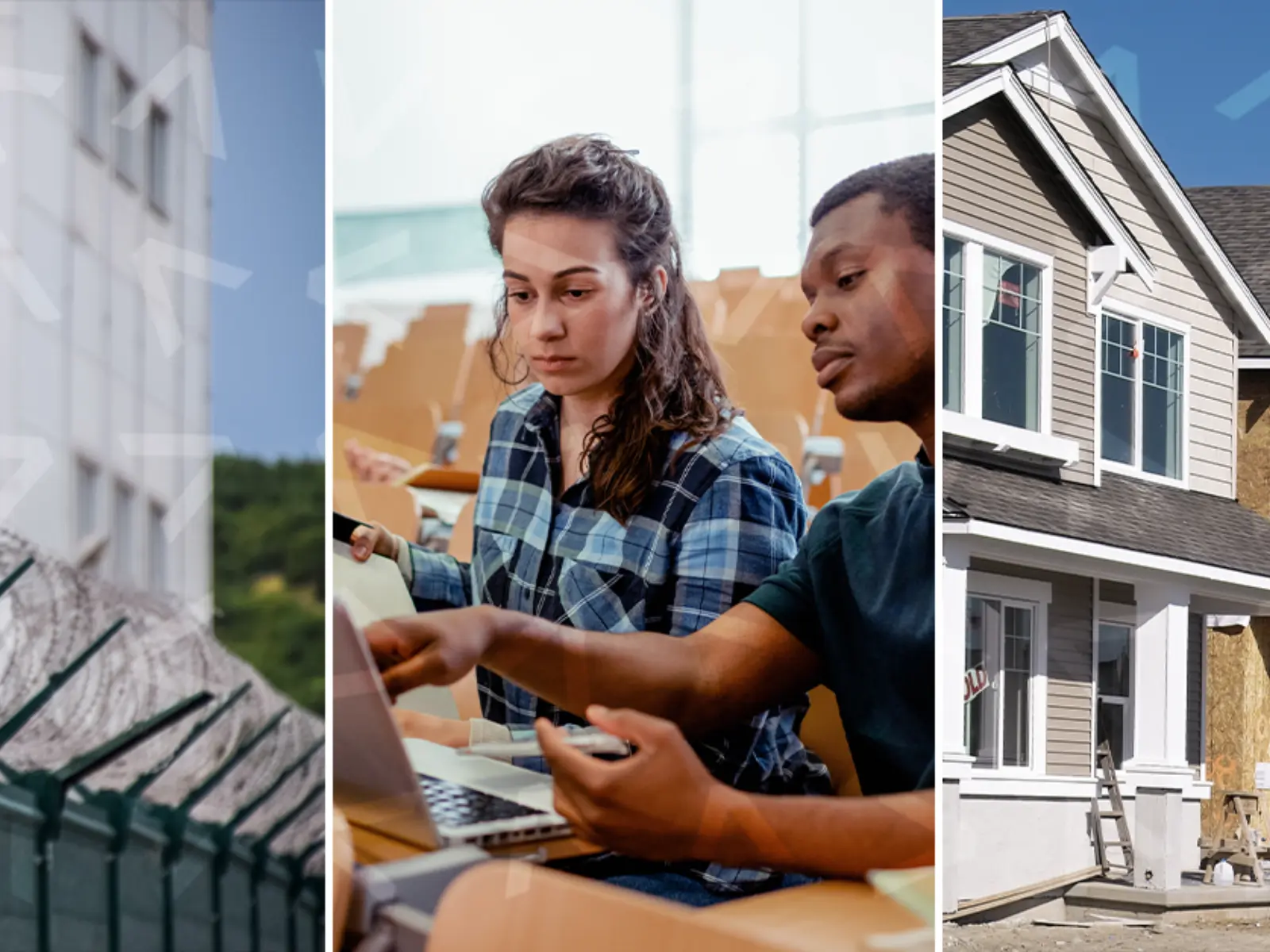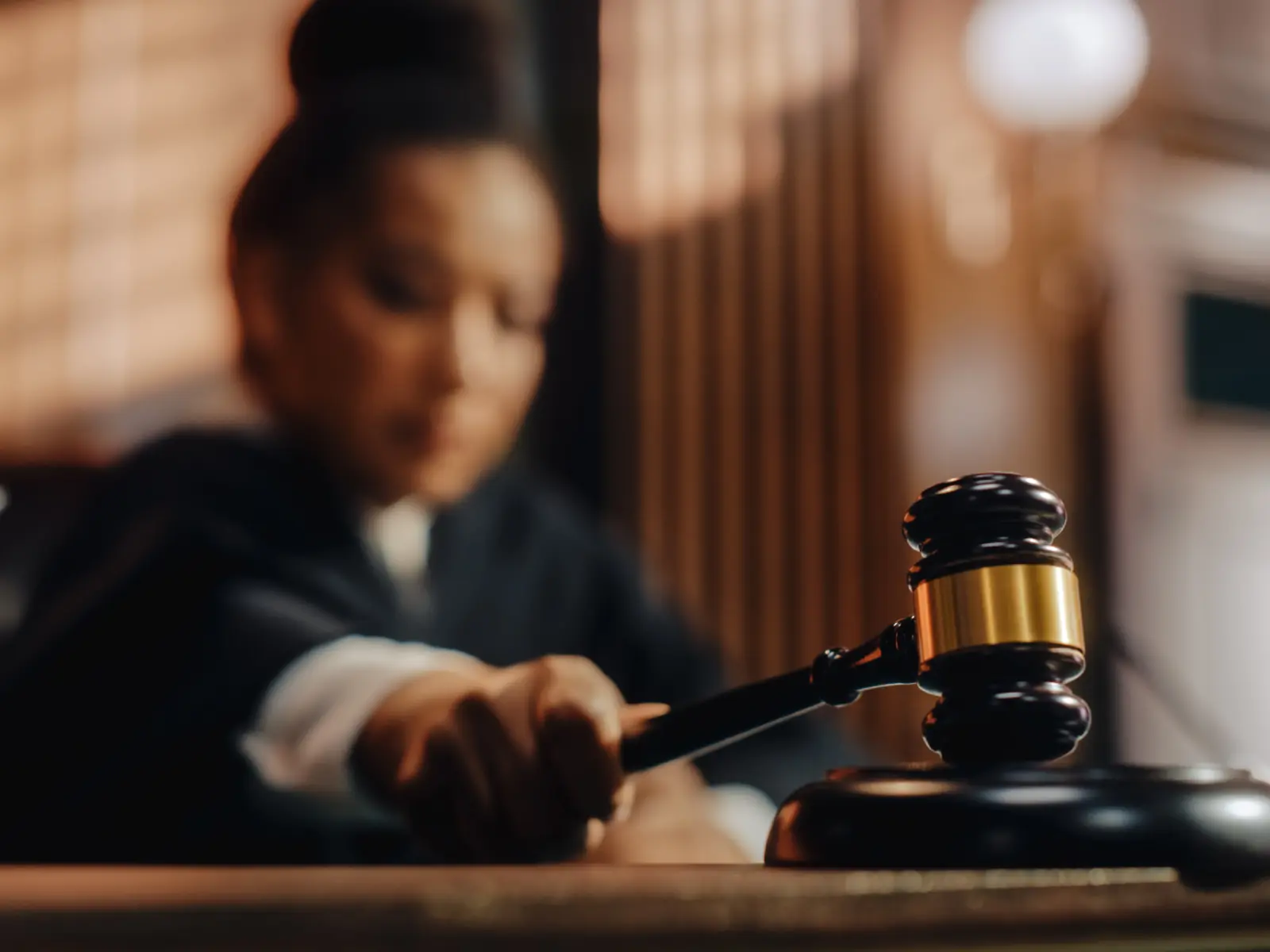For the past six years, April has been proclaimed “Second Chance Month” by the president of the United States and many governors and local officials from both parties. The designation provides an opportunity to reflect on the many barriers that formerly incarcerated people and those with an arrest or conviction record face when trying to return to their communities — and to think about what policies or approaches could be implemented to overcome those barriers.
Randall McNeil joined Arnold Ventures as a criminal justice fellow in November 2022. As a recently incarcerated person who is making the most of his second chance, Randall brings a unique and valuable perspective to our organization’s work. We sat down with Randall to talk about his story and his perspective on the challenges and opportunities formerly incarcerated people face.
This conversation has been edited for clarity.
It has been great working with you and getting to know you better these past few months. What brought you to Arnold Ventures?
After I was released from prison, I was part of the BreakFree Education fellowship program, and through them I interviewed with three host organizations. Arnold Ventures was the first of the three, and through the interview process, and learning more about the organization and what it does, I felt like I had to come here. Arnold Ventures was my first choice. I never thought that I would get into criminal justice reform or anything like that. That was not the plan when I was locked up. It sort of just fell in my lap. And I’m so happy that it did because I feel like I am making a real difference in the world, and this is something that I would love to continue doing for the rest of my career.
How important is a second chance for people involved in the justice system?
Well, to me, it means everything. I’m a firm believer that people can change. I was incarcerated when I was just 20 years old, and I had a life sentence. But as I did my time and got older, I became aware of the mistakes and bad choices that I had made. I realized that this wasn’t the life that I wanted to continue living, and I vowed that if I was ever given a second chance, I would make the most of it. When people are incarcerated, sometimes they just continue down the path they were on. But some people decide to try and change, and they should be given the opportunity and support to do so. I did everything that I could while I was incarcerated to improve and educate myself, even though I had a life sentence. I started in the law library, looking up cases and filing documents with the court. I kept staying out of trouble and working with my mentor. I participated in all sorts of different programs, like conflict resolution and parenting so I could work on my relationship with my kids even though I was incarcerated. After 24 years in prison, my opportunity finally came. And when it did, the judge looked at my record and everything that I had tried and accomplished, and decided I was rehabilitated and deserved a second chance. And I am eternally grateful for that.
You just spoke about some of the programs and opportunities that helped you earn a second chance while you were incarcerated, but what kind of supports do you think are the most important once someone is released so that they can successfully reintegrate into their communities?
Most people when they come home, they struggle to find a job or a place to live. Everything costs money, and when you don’t have good employment, it is very easy to get stressed and fall back into old habits and ways of making money that are illegal or unethical. The same with housing. In many places decent housing is very expensive, but there are certain rules on where you can go when you are released. Take me for example. They required that I be released to a Washington, D.C. address. But most of my family and friends had left the city because of how unaffordable it had become. So, my options were to go to a shelter or a transition home. And those places have additional burdens, like having to be home every day at a certain time. Which, in turn, makes it harder to find a job. So, for many people the pressure just keeps building up. I think the biggest thing we could do to make reentry successful is provide access to good quality jobs and housing.
Are there any programs that have been particularly helpful to you?
Yeah, there are several programs that have been particularly helpful to me on my journey. One is a book club called Free Minds. They have weekly meetings for people in the program who have been released, and during the meeting everyone has a chance to speak about things they are going through. For instance, the other day I was talking to the group about how when I returned home, I expected my relationship with my daughter to be a certain way. But she is now an adult, so there have been some challenges there. And another guy on the call was going through some similar things. It’s really a much-needed space for formerly incarcerated people. We share job openings and other important information and in general just stay in touch with each other as we go through this process. The program also offers other services. For instance, if you or a family member needs professional counseling or therapy, they will pay for a certain number of sessions. And given the trauma many formerly incarcerated people have experienced, this is very much appreciated.
I am also part of another program called Changing Perceptions. This program provides a lot of practical assistance to formerly incarcerated people to make the reintegration process smoother. For instance, since I have to take the bus or train to work, they provide transit cards. When I moved in with my daughter, they provided her with some funding to pay for groceries and rent and whatnot. They gave me some money to buy clothes for my job interviews. Things like that. So, I was really fortunate to get into some good programs when I was released. And I really needed it. Anyone who says they don’t need support when they get out of prison, or that we should not give support to formerly incarcerated people, doesn’t understand the reality of what it is like to try and reintegrate back into society.
Has your time so far at Arnold Ventures changed your thinking at all on reintegration issues or criminal justice reform in general?
Beyond my own personal experience, I had never really thought that deeply about second chances and reintegration until I started working at Arnold Ventures. But one of the first tasks I had here was writing up a short blurb on one of our grantees, Sam Lewis, who himself was formerly incarcerated. That really opened my eyes. He came home and started his own nonprofit organization that helps other formerly incarcerated people. And he goes back into prisons and talks to the people there about what they can be doing to prepare themselves for their second chance. So, I realized that part of my second chance has to be about helping others who are in a similar situation. My work at AV has also helped me understand that the challenges and barriers to reintegration that people like me face are the result of policies and decisions that are made at the highest levels of government and politics. I am learning every day about how and why laws and policies get enacted, and how they impact people’s lives. It has really made me see my experience in a different light and understand how individuals, communities, and systems are all connected together in different ways.
Do you have any short- or long-term goals that you are working toward?

One of my first goals was getting married to the mother of my children, and I checked that off the list this past Valentine’s Day. Now, it’s all about establishing myself and my family. One day I want to be a homeowner. I really want to continue my career in criminal justice reform, and to use my experience and story to fight for a more equitable, just, and safe society.
Overall, my goal is just to continue to be a better person. After 24 years of incarceration, I was so fortunate to be able to come home. I promised myself, my lawyer, my judge, and most importantly, my family that they would not regret giving me a second chance and that they would never, ever have to worry about me going back to prison. So, in order to keep that promise, I have to work every day to be better. To be great.

